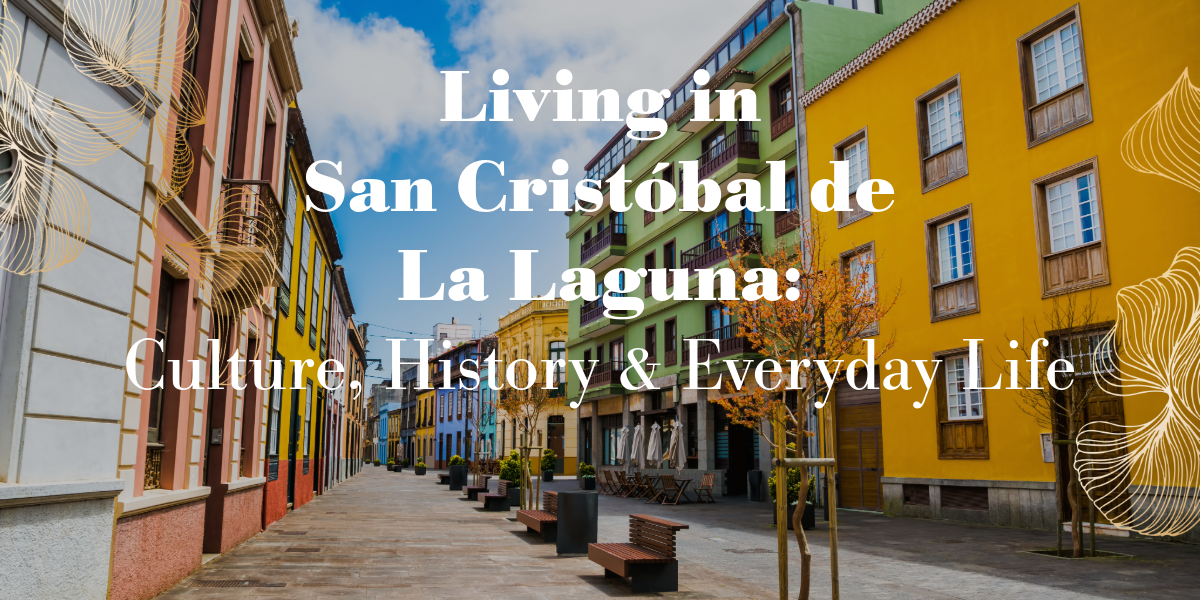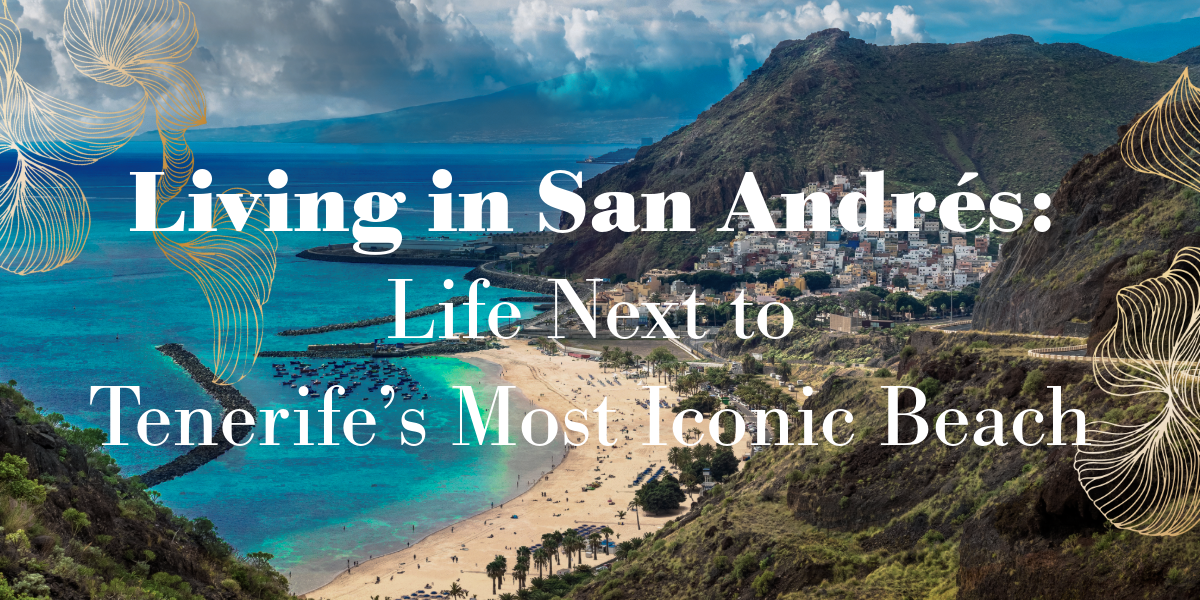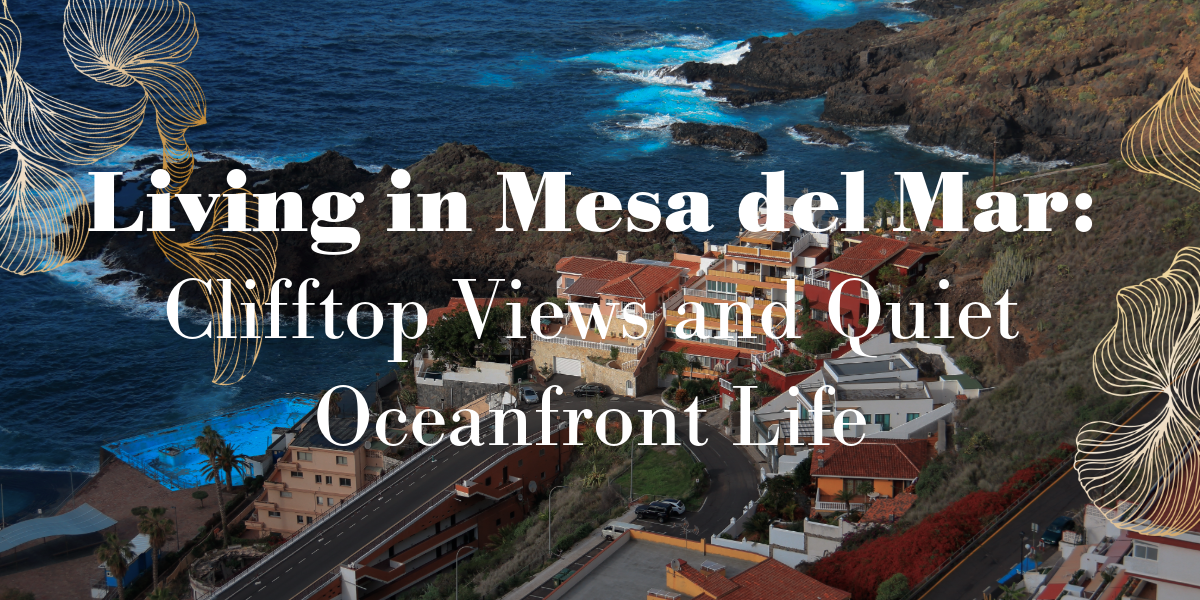Debunking the Myth: Foreign Buyers and Property Taxes in Tenerife
Have you heard the rumor that expats pay more property taxes than locals in Tenerife? It’s a frightening idea, but it’s simply not true. In this blog, we’ll investigate this myth and explain in clear, reassuring terms how property taxes really work for foreign buyers. You’ll see that Spain’s property taxes are based on the property itself – not on who you are or where you’re from. We’ll cover all the key property-related taxes (purchase taxes, notary/registration fees, annual IBI, and capital gains on sale) and compare how they apply to Spanish nationals, foreign residents, and non-resident buyers. By the end, you’ll feel confident that you are not being discriminated against or unfairly charged higher fees. And with Luxury World Properties – a Tenerife real estate expert with over 25 years of experience – by your side, you can navigate every step knowing all legal and financial details are handled properly.
Dispelling the “Higher Taxes for Foreigners” Rumor
Lately, some sensational news and propaganda have suggested that foreigners buying property in Spain (including Tenerife) face extra taxes. For example, early 2025 saw headlines about a possible “100% tax” on property purchases by non-EU buyers. This understandably caused alarm among expats. Let’s set the record straight: this was a proposed measure that was never approved into law. In reality, foreign buyers currently pay the exact same property purchase taxes as any local Spanish buyer. Spain does not impose a “foreigner surcharge” on property transactions.
Why do these rumors arise? Often it’s due to misunderstandings or dramatic proposals being misreported. Spain has been exploring ways to address housing affordability, but no special tax targets foreign buyers at this time. The Spanish government treats property purchases uniformly: tax rates depend on the property’s value, type, and location – not the buyer’s nationality or residency. As a result, you can put aside fears of being penalized for being an expat. Let’s break down the main property-related taxes to show how they work for everyone.

Property Purchase Taxes: ITP (Resale) and VAT/IGIC (New Builds)
When you buy a property in Tenerife, you’ll pay a one-time purchase tax. The rate and type of tax depend on whether the property is a resale or a new build – but they do NOT depend on who you are. Here’s what to expect:
• Resale Property – Transfer Tax (ITP): For a second-hand home in Tenerife (and throughout Spain), the buyer pays a transfer tax called Impuesto de Transmisiones Patrimoniales (ITP). In the Canary Islands, the general ITP rate is 6.5% of the purchase price (this is the same base rate that local Canarian buyers pay). In some cases (for example, if you’re buying your primary residence and meet certain criteria), a reduced rate like 5% may apply – but these reductions are based on the property use and regional law, not on your nationality. Across Spain, ITP ranges roughly 6% to 10% depending on the region, and foreign and local buyers pay exactly the same rates. There is no extra percentage tacked on just because you’re an expat.
• New Build Property – VAT (IVA or IGIC): If you buy a brand new property from a developer, it isn’t subject to ITP. Instead, new properties in Spain incur VAT (called IVA on the mainland) or IGIC in the Canary Islands. In Tenerife, the IGIC (Canary VAT) on a new home is 7% of the price (whereas the standard VAT for a new home on mainland Spain is 10%). Again, this tax rate is standard for everyone – local or foreign. A Canarian buying the same new apartment would also pay 7% IGIC. The tax is based on the property being new and located in the Canaries, not on the buyer. (Note: If you do pay VAT/IGIC on a new build, you will also pay a stamp duty on the notarized deed, known as AJD, around 0.5–1% in Canary Islands – this is also uniform for all buyers.)
Bottom line: Whether you’re a Spanish citizen or a newcomer from abroad, the property purchase taxes (ITP or VAT/IGIC) for a given home are identical. Spain welcomes foreign buyers and does not charge them higher transfer tax rates. This has been confirmed by Spanish authorities – for example, current law states a resale home purchase tax of ~6–11% (depending on region) or 10% VAT on new homes, “with no distinction based on the origin of the buyer.”swissinfo.ch You can budget for these taxes with confidence that you’re on equal footing with any local buyer.
Standard Notary and Registration Fees (No “Foreign” Surcharge)
After agreeing on a property and paying the purchase tax, you’ll sign the purchase deed in front of a Spanish notary and then register the property in your name. These steps come with some additional costs – notary fees and land registry fees – which every buyer must pay, Spanish or foreign. The good news is that these fees are heavily regulated and fixed by law, so they are standardized and not arbitrarily inflated for foreigners.
Notary fees in Spain are set by an official fee schedule (regulated by Royal Decree) and generally range from about 0.2% to 0.5% of the property price. The exact fee depends on factors like the property price and the complexity of the deed, but it does not depend on who the buyer is. The notary will charge the same for handling a €200,000 apartment sale whether the buyer is a Tenerife local or an expat from London. Similarly, Land Registry fees (for officially recording you as the new owner) typically amount to roughly 0.1% to 0.25% of the property’s value. These fees are also standard and apply equally to all buyers.
In practice, notary and registry fees for an average home might sum up to around 1% (or a bit less) of the purchase price. This is an across-the-board cost. You won’t find yourself paying a higher notary tariff just because you’re not Spanish. Everyone pays the same set fees to formalize their property purchase.

Annual Property Tax (IBI): Based on Property Value, Not Owner
Owning property in Tenerife (or anywhere in Spain) means you’ll pay an annual property tax to the local municipality each year. In Spanish this council tax is called Impuesto sobre Bienes Inmuebles (IBI). Importantly, IBI is calculated on the property’s cadastral value and location, with no regard to the owner’s nationality or residency status.
IBI is akin to a council tax or rates: the town hall sets a rate and applies it to your property’s cadastral value (an assessed value of the property for tax purposes). Typically, the rate ranges from about 0.4% up to 1.1% of the cadastral value, depending on the municipality. For example, if your home has a cadastral value of €150,000 and the local rate is 0.6%, your IBI would be €900 per year. Everybody who owns a property in that town pays that same rate on their respective property’s value – there’s no extra coefficient for expat owners. In fact, the city often doesn’t even know or care about the owner’s citizenship; they just bill the person (or company) listed on the property deed.
Whether you’re a Spaniard, a foreign resident, or a non-resident owner, if you own property in Tenerife you’ll pay IBI each year just like your neighbors do. There are some situations where discounts or surcharges might apply – for instance, some municipalities grant small IBI rebates for energy-efficient homes or charge higher rates for vacant properties – but those are based on the property’s use, not on who owns it. No IBI policy in Spain charges a higher rate for foreign owners. So as long as you own the property, budget for the IBI annually, and rest assured it’s the same fair share everyone else is paying to maintain local services.

Selling Your Property: Capital Gains Tax (CGT) – Same Rate, One Extra Step for Non-Residents
Property taxes aren’t just during purchase and ownership – you’ll also deal with taxes if you eventually sell your Tenerife property, specifically Capital Gains Tax (CGT) on any profit from the sale. The rules for CGT are very similar for everyone, with one procedural difference if you are not a resident in Spain. Let’s break it down:
When you sell a property in Spain and make a profit, Capital Gains Tax is owed on the gain (the difference between your selling price and what you originally paid, after allowable costs). The tax rate on capital gains is the same for foreigners and locals; it’s determined by Spanish tax law and can vary slightly year to year or based on the size of the gain. As of recent years, the standard CGT rates for residents are 19% to 23% (progressive, depending on the amount of the gain). Non-residents (who are citizens of EU/EEA countries) pay a flat 19% on the gain, while non-residents from other countries pay 24%. These rates are national law – for example, a British non-resident owner (now treated as non-EU) faces a 24% tax on the gain, whereas a German non-resident owner (EU citizen) would pay 19%. It’s a subtle difference based on Spain’s agreements and EU rules, but crucially, it’s not a punitive “extra” tax – it’s simply the way Spain’s income tax law applies to residents vs. non-residents. A Spanish citizen living abroad would also be subject to the non-resident flat rates, while a foreigner living in Spain pays the resident rates. In other words, the tax rate is based on tax residency status, not on being foreign.
Now, here’s the key part that often causes confusion: the 3% withholding at the time of sale for non-resident sellers. If you are not a fiscal resident of Spain when you sell your property, Spanish law requires the buyer to withhold 3% of the sale price and pay that to the Spanish tax agency on your behalf. This is NOT an extra tax on top of your capital gains tax – it’s basically an advance payment (a withholding) toward whatever CGT you owe. Think of it as the Spanish authorities saying, “We want to make sure we collect any capital gains tax from this sale, so we’ll take 3% upfront.” After the sale, you (the seller) will file a Spanish tax form to calculate the actual capital gain and the tax due. If the 3% withheld was more than the tax you owe, you can claim a refund of the difference. If the tax due is more than 3%, you would pay the remaining amount.
For example, suppose you sold your property for €200,000, and as a non-resident the buyer withholds €6,000 (which is 3%). Later, you calculate that your actual capital gains tax on the profit should be €4,000. In that case, you’d get the excess €2,000 refunded. Conversely, if your CGT obligation was €8,000, the initial €6,000 covers part of it and you’d pay an additional €2,000. Either way, you are not losing money unfairly – you’re simply paying the tax like anyone else, with some paid in advance. The 3% withholding is a standard practice across Spain for non-resident sellers, not unique to the Canaries. It applies no matter what country you’re from, and it applies as well to Spanish nationals who live abroad and sell their Spanish property. The only reason it exists is that non-residents don’t file annual Spanish tax returns by default, so this mechanism ensures the tax is collected.
It’s worth noting: Spanish residents who sell their home do not have this 3% withheld at the sale – instead, they report the capital gain in their next income tax return and pay the tax then. Residents also enjoy certain exemptions (for instance, if it’s your primary home and you reinvest in another home, or if you’re over 65 and it’s your main residence, you might avoid CGT entirely). Non-residents generally cannot claim those particular exemptions – which is a difference based on residency, not nationality. Even so, this doesn’t mean foreigners “pay more tax”; it just means if you choose not to become a resident, you don’t get resident benefits (which is common in many countries).
The key takeaway: Foreign buyers are not being singled out for a higher tax; the 3% withholding for non-residents is the main difference, and it’s a safeguard, not an extra cost in the long run. It’s also refundable in case you owed less tax. So if you plan to buy in Tenerife and later sell, you can decide whether to become a Spanish resident or not based on your personal situation, but either way you’ll pay the normal capital gains taxes – no hidden foreigner penalty.
(One more tax on property sales to be aware of is the municipal “plusvalía” tax, which all sellers must pay to the local council on the increase in land value. This, too, is charged regardless of who you are. Plusvalía has its own calculation based on local rates and the property’s cadastral value increase, and it applies equally to residents and non-residents. If you’re a non-resident seller, make sure this gets paid (usually via your solicitor or the buyer) because if a non-resident seller doesn’t pay their plusvalía, the council could hold the property liable. Again, that’s a procedural point – not an extra tax for foreigners, just the standard tax all sellers owe.)

No Discrimination: Same Taxes for Spanish, Expats, and Non-Residents
It’s clear by now that Spain’s property tax system does not discriminate between local and foreign buyers. To underscore this, let’s directly compare how a Spanish local versus a foreign buyer would be treated in Tenerife:
• Spanish Nationals (Residents): A Spanish citizen living in Tenerife pays all the same property purchase taxes on their new home as listed above (6.5% ITP or 7% IGIC, plus notary and registry fees). They pay IBI annually like everyone else. If they later sell the property, they pay capital gains tax at the standard rates through their income tax return (with no 3% withheld at sale). They may qualify for certain CGT exemptions if it was their main home, etc., as per normal Spanish tax rules for residents.
• Foreign Residents in Spain: If you are an expat who has become a resident of Spain (for example, you’ve obtained a residence permit and spend most of the year here), then for property tax purposes you are in the same boat as Spanish residents. You do not pay any extra purchase tax or fees. You pay the same ITP or VAT on buying, the same notary/registry fees, and the same IBI yearly. When selling, you’ll be taxed as a resident (no 3% withholding, and you can access the same exemptions residents get). In short, Spain treats foreign residents equally to Spanish citizens in regard to property taxes. The law cares about where you live (tax residency), not your passport.
• Non-Resident Foreign Buyers: If you buy a property in Tenerife but remain a non-resident (e.g. using it as a holiday home or investment while you live elsewhere), you still pay exactly the same ITP or VAT on purchase as everyone else, and the same annual IBI. There are no higher rates for non-resident owners. The only differences you’ll encounter are: (1) When selling, the 3% CGT withholding will apply (as discussed, it’s a precaution and eventually adjusted to the actual tax due). (2) As a non-resident owner, Spanish law also requires you to file a simple annual tax form to declare a small imputed income tax on your property if you don’t rent it out. This is not a property tax per se, but rather Spain’s way of taxing the benefit of owning a second home. It’s usually a modest amount (roughly 1.1% of the cadastral value taxed at 19–24%, resulting in maybe a few hundred euros a year). Spanish residents with second homes pay a similar tax on their second property via their income tax, so again it’s not because you’re foreign – it’s because you’re not living in the property full-time. Aside from this, non-resident owners are not charged any extra “foreigner” property fees. Manage these standard obligations, and you’ll be treated just like any owner in Spain.
As you can see, the tax treatment is fundamentally the same across the board. Spain’s system is actually quite welcoming to foreign investors – there are no special property taxes aimed at foreigners. Owning property as an expat in Tenerife means you contribute the same taxes as your Spanish neighbors for the home you own and the profit you make if you sell. You are not paying more – nor less – just because of your nationality. The rumors of higher taxes for foreigners are unfounded. The only real variance comes down to residency status for certain income taxes, and that’s a standard practice internationally.

Trust and Peace of Mind with Luxury World Properties
Navigating property taxes and legalities can be daunting, especially in a foreign country. The truth is, while the rules apply equally, understanding them fully and handling all the paperwork properly is key to a smooth, stress-free purchase. This is where Luxury World Properties shines. Our team has over 25 years of experience in the Tenerife real estate market, and we have guided countless clients from around the world through successful purchases and sales. We ensure every legal and financial detail is managed properly, so you never have to worry about missing a tax or misunderstanding a fee.
From the moment you start working with us, we provide complete guidance on all costs involved – no surprises and no “hidden foreigner fees” (because, as we’ve shown, those don’t exist!). We will clearly explain your ITP or VAT costs, notary and registry fees, and help set up your IBI payments. If you’re a non-resident, we’ll advise you on the simple yearly tax filings and how to handle the 3% withholding when the time comes to sell. Our goal is to make you feel secure and informed at each step, turning what could be a complex process into an experience you can approach with confidence.
With Luxury World Properties by your side, you can rest assured that you are never being overcharged or disadvantaged as a foreign buyer. We value the trust you place in us. Our multilingual team will answer all your questions, debunk any myths that worry you, and act in your best interest. Purchasing a property in Tenerife should be an exciting and positive journey – and we are committed to keeping it that way for you.

Conclusion: You Can Buy in Tenerife with Confidence
To sum up, the notion that expats or foreign investors pay more in property-related taxes in Tenerife (or anywhere in Spain) is a myth. Spain’s property taxes are fair and impartial: they depend on the property and the transaction, not your passport. As a foreign buyer, you pay the same purchase tax rates, the same notary and registry fees, and the same yearly property taxes as any local buyer would. When you sell, you pay the same capital gains tax rate as others – with a different payment method if you’re not a resident, but ultimately no extra cost. The 3% non-resident withholding is a standard part of the process and is refundable, not a penalty.
We hope this explanation has eliminated any fear or confusion you might have had. Thousands of foreign buyers successfully purchase homes in Tenerife and across Spain every year, enjoying their slice of paradise without being saddled with higher taxes. You can be one of them, free of worry.
If you have more questions or need personalized advice, Luxury World Properties is here to help. With our extensive experience and caring guidance, you can proceed knowing everything is done correctly and fairly. Tenerife welcomes you, and we at Luxury World Properties are ready to make your property dreams come true – with no unwelcome surprises, just the warm sun, sea breezes, and the joy of your new home.

References:
• SWI Swissinfo (17 Jan 2025) – “Dudas sobre el impuesto del 100% a compras inmobiliarias de extranjeros en España.” Details the Spanish government’s proposal of up to 100% tax on non-EU buyers, noting it was symbolic and not approved, and confirms that currently buying a resale property in Spain incurs a 6%–11% ITP or 10% VAT “without distinction according to the buyer’s origin.”swissinfo.chswissinfo.ch
• idealista/news (26 Mar 2025) – “Who pays what when buying or selling a home in Spain?” Explains the costs for property transactions, noting notary fees (0.2%–0.5% of price) and land registry fees (0.1%–0.25%) for buyers, which are regulated by law and standard for allidealista.comidealista.com. Also summarizes purchase taxes: new builds pay 10% VAT (+0.5%–1.5% stamp duty) and resales pay transfer tax ~6%–10% depending on regionidealista.com.
• Spanish Property Insight – Guide: “Spanish property taxes for non-residents.” Comprehensive resource on property-related taxes. Confirms annual IBI is a local tax based on cadastral value (~0.4%–1.1% typically)spanishpropertyinsight.com. Describes the 3% capital gains tax retention: when a non-resident sells, the buyer withholds 3% of the price and pays it to cover CGT; if this exceeds the actual tax due, the seller can get a refundspanishpropertyinsight.com. Explains that this retention is intended to cover the seller’s CGT liability, not an extra tax.
• Luxury World Properties – Company Profile. Highlight from a company listing description emphasizing 25+ years of experience in the Tenerife real estate sector and a professional team that provides personalized service, guiding clients throughout the processtenerifereal.com. This underlines LWP’s commitment to quality service and client satisfaction, ensuring every detail (legal, financial, etc.) is handled for a smooth experience.
Artículos recientes

13 de octubre de 2025 13/10/2025
Living in San Cristóbal de La Laguna: Culture, History & Everyday Life
San Cristóbal de La Laguna (often simply “La Lagu…

13 de octubre de 2025 13/10/2025
Living in Santa Cruz de Tenerife: Capital Vibrancy with Atlantic Breeze
Santa Cruz de Tenerife is the vibrant capital of …

13 de octubre de 2025 13/10/2025
Living in San Andrés: Beachside Tradition at the Edge of Santa Cruz
San Andrés is a traditional coastal village tucke…

26 de septiembre de 2025 26/09/2025
Living in Mesa del Mar: Clifftop Views and Quiet Oceanfront Life
Mesa del Mar is a small, secluded coastal village…

26 de septiembre de 2025 26/09/2025
Living in Puerto de la Cruz: Tradition, Culture, and Coastal Comfort
Puerto de la Cruz is the beating heart of norther…